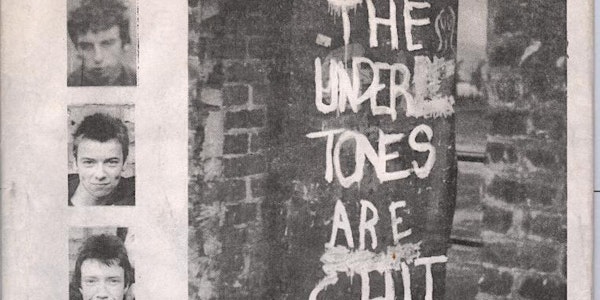
Exhibition PUNK TROUBLES : NORTHERN IRELAND
Date and time
Location
American Irish Historical Society
991 5th Ave New York, NY 10028Description
Exhibition will be open to the public from:
Thursday, September 21st, 2017 – Friday, October 13, 2017.
Monday through Friday 10–5pm
Saturdays 12–4pm
The exhibition PUNK TROUBLES: NORTHERN IRELAND at the American Irish Historical Society curated by punk historian Toby Mott with a catalogue of the same title published by Dashwood Books designed by Jamie Andrew Reid, examines the subject of N.I. punk in the context of sectarianism. The arrival of Punk in Northern Ireland offered young people, Catholic and Protestant alike, a brief respite from three decades of devastating civil war. Set against a backdrop of car bombs, hunger strikes, security checks, murder and random acts of violence the N.I. punk scene became, fleetingly, a neutral space, a ceasefire of sorts where the young and suppressed regardless of their religous persuasion came together to create their own D.I.Y. culture encompassing Music, clothing, writing and importantly, an attitude. It was a collective of Catholic and Protestant working class youth who eschewed violence to embrace a creative way of life which provided an alternative to the grey and frightening setting of what was commonly referred to by one and all as, ‘The Troubles’.
The opening line of The Undertones ‘Teenage Kicks’, ‘A teenage dream so hard to beat’, was not a lyric that any UK punk band would or could have written. It was open, fresh, honest, a breezy slap in the face to cool, cynical, elitist London and this positive energy was not restricted to The Undertones. The scene celebrated youth and life despite the constant news of death and fighting around them. Crucially, in its positivity N.I. punk was a unifying force and, whilst some individuals aligned themselves with particular opposing groups, the movement as a whole was specifically not sectarian.